Speaking briefly, writing briefly, avoiding long and empty writing became the consistent motto, controlling and shaping Ho Chi Minh's language style, a model for the language style of Vietnam's revolutionary press. This viewpoint is also consistent with the trend of modern journalism: Informing the public quickly, concisely, accurately and promptly.
He criticized the “disease” of “talking too much”, the “water spinach” writing style, meaning “long rivers and seas” which makes the reader feel like “slowly entering the green forest”. Ho Chi Minh explained: “Currently, the level of education of the majority of our people does not allow for long reading, the conditions of our paper and ink do not allow for long writing and printing, the time of our soldiers fighting the enemy, the people working do not allow for long reading. Therefore, the shorter the writing, the better”.

He criticized the "long writing" style: "In newspapers, there are articles that are several columns long, like water spinach pulled up on a string. When you read the middle part, you don't know what the beginning part is about; when you read the end part, you don't know what the middle part is about. That is useless."
Ho Chi Minh's way of using spoken and written language has reached a level of sophistication, skillfully applying the traditional language of the nation, and having surprisingly unique creations. The outstanding feature of Ho Chi Minh's political writing is that he always clearly distinguishes between "enemy and us". With the enemy, he is resolute and resolute. With cadres and people, including comrades with shortcomings, he is considerate, loving, "reasonable, emotional". However, when criticizing the disease of "long talk and empty talk", Uncle Ho's words are very strict:
“Many of you guys like to write long articles. You write line after line, page after page. But it is useless to the readers. It just wastes paper, ink, and the readers’ time. It’s like a bandage on a sore, and it’s long and rotten. Why write such long and empty articles? There is only one answer: You absolutely do not want to let the masses read them. Because they are long and empty, when the masses see them, they shake their heads, who would dare to read them? The result is that they are only read by those who have no job, and the readers also have the same bad habits as the writers.”
Writing for the newspaper is to “serve the people, serve the revolution”. But if you write “long-windedly” and “emptily”, it is contrary to that purpose, it is “absolutely not wanting the masses to read”. Uncle Ho’s humorous but very strict way of expressing himself shows his decisive criticism of the long-winded writing style that is “useless to the readers”, the writing style that “wastes paper and ink, wastes the readers’ time”, the writing style that is only for “those who have no job”… Especially in the historical context of “boiling water and fire” of the country, that writing style is even more inappropriate. “During this resistance war, soldiers at the front must fight the enemy, compatriots in the rear must increase production, who has time to read such long articles”.
Uncle Ho's brief articles in Thanh Nien Newspaper, Vietnam Independence before the Revolution, or in Nhan Dan Newspaper later are clear evidence of that style. There are propositions that Ho Chi Minh raised that have become the spirit of the whole nation, in terms of content and form: "Vietnam is one, the Vietnamese people are one, rivers can dry up, mountains can wear away, but that truth will never change". "Nothing is more precious than independence and freedom"... Concise, simple but still ensuring content, aesthetics, deep expression, convincing with clear reasoning, against "writing long and writing empty"... is Ho Chi Minh's journalistic language style: Writing "so that all compatriots can read and understand".
Strict but with love and reason, Ho Chi Minh's viewpoint on "fighting against long and empty writing" is deeply convincing because of its overall view, placed in a debate, explained thoroughly and thoroughly, without subjective imposition. It is not necessary to always write short, especially on theoretical issues. There are cases where writing short is not good if it lacks ideas and is short. But first of all, we must fight against the habit of writing "empty and long":
“Writing long and empty is not good. Writing short and empty is not good either. We must fight against all empty habits. But first of all, we must fight against empty and long habits.
So aren't theory books, or this one for example, long?
Yes, it's long but every sentence, every word has a purpose, not empty.
The proverb says: “Measure a cow to build a stable, measure a man to make a shirt.” Whatever you do, you must have moderation. The same goes for writing and speaking. We are against long talk and empty writing, not necessarily everything must be short to be good.”
Form goes hand in hand with content. The form must be concise but the content must be complete. Ho Chi Minh was deeply aware of this. He raised the issue of preventing “empty writing” precisely to ensure the content that needs to be expressed:
“Speaking and writing must of course be concise. But first of all, there must be content. We must cure the disease of long speech and empty writing.”
“Writing short” or “writing long” is ultimately about “writing well”, “writing correctly” and “writing appropriately”. From the perspective of journalistic effectiveness, the important thing is to write so that the public can understand and understand, then it is easy to implement. That also means that journalism has a strong impact on public opinion, changing perceptions and behaviors, contributing positively to promoting the development of social practice. Ho Chi Minh’s journalistic thinking is essentially derived from revolutionary methodological thinking, “doing journalism to make revolution”, so effectiveness is always his top priority.
Thus, the style of expression, or more broadly, the journalist's creative method, must be appropriate to the audience and depend on the issue being addressed, not necessarily stereotyped or rigid. Many researchers, when evaluating Uncle Ho's "writing style", also unanimously agreed that there was a clear change in Ho Chi Minh's writing style and language during the period of writing for newspapers abroad and the period of writing for newspapers in Vietnamese later. It is not simply a difference in the language system (English, French, Russian... compared to Vietnamese), but this is a conscious change in style and linguistic thinking. It is a change from a profound writing style with many layers of meaning, many methods of argument and comparison to a simple, easy-to-understand and concise writing style.
This is even more evident when analyzing the period when Uncle Ho worked as a journalist in France with a "very French French writing", "charming mockery and deep irony" as commented by Professor Pham Huy Thong. Professor Dang Anh Dao said: "Nguyen Ai Quoc's works are purely Vietnamese motifs, themes, and inspirations, expressed through a modern journalistic style, French journalism". "Up to now, although the gap between Vietnamese journalism and French journalism has shortened a lot after nearly a century of penetration and exchange, we see that Nguyen Ai Quoc's articles compared to the current Vietnamese journalistic writing style - except for some special cases - are still different. It seems that our journalistic writing style is still more serious, dignified, less individualistic, more ancient and neutral than the style of Nguyen Ai Quoc - a "old-fashioned" person.
There may still be opinions that do not necessarily agree with Professor Dang Anh Dao's assessment, but in fact, the journalistic style of Nguyen Ai Quoc when he was a journalist in Paris (France) and the journalistic style of Ho Chi Minh later had a clear change. The person who once wrote "very French French literature" (please understand literature here as writing style, language style, including journalistic language) became a journalist who wrote in pure, simple Vietnamese, with the consciousness of writing concisely, easy to understand, easy to remember, easy to follow. In the specific conditions of our country, Ho Chi Minh's requirement to avoid "writing long, writing empty" is extremely practical, with profound meaning in both theory and practice. He himself is an exemplary model for the style of "speaking briefly, writing briefly" for the people to understand and follow.
Changing the language style is not a simple matter. From the articles with “very French French”, “charming mockery and deep irony”, articles with a very talented multi-tonal and multi-faceted language tone when working as a journalist in Paris to the simple articles “serving workers, farmers, and soldiers” later on, it was all a training effort of Uncle Ho. Always adapting to new situations and conditions, Ho Chi Minh’s journalistic thought bears the mark of a communist, his pen “supporting the right, warding off evil”, taking the goal of serving the revolution as the top priority. His requirement of “speaking briefly, writing briefly”, speaking with content, avoiding “distorting the thread” had a great influence, contributing to making the journalistic language and to some extent the Vietnamese linguistic thinking become simple, practical, and clear.
That is also a profound lesson, to be kept in mind by Vietnamese journalists when celebrating the 100th anniversary of revolutionary journalism!
Source: https://hanoimoi.vn/bac-ho-voi-nguyen-tac-tranh-viet-dai-va-viet-rong-706271.html



![[Photo] Da Nang: Hundreds of people join hands to clean up a vital tourist route after storm No. 13](https://vphoto.vietnam.vn/thumb/1200x675/vietnam/resource/IMAGE/2025/11/07/1762491638903_image-3-1353-jpg.webp)







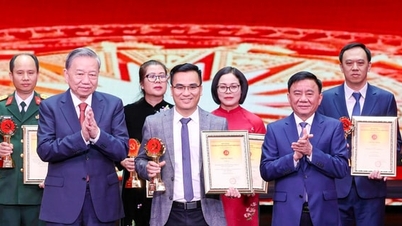
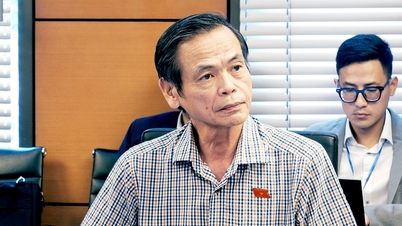

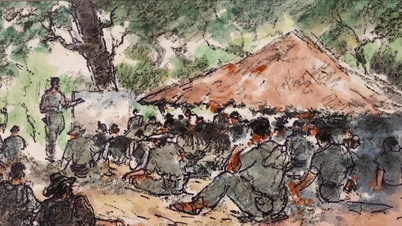

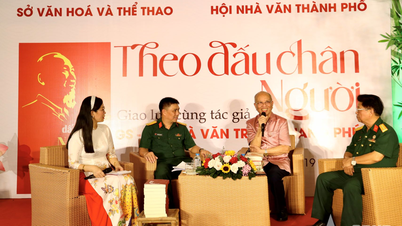







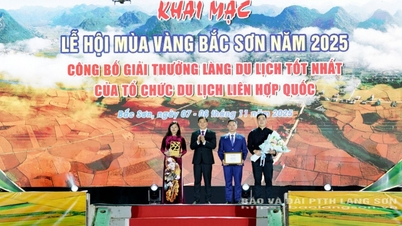






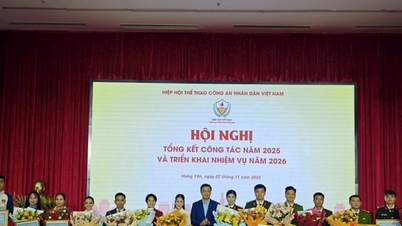


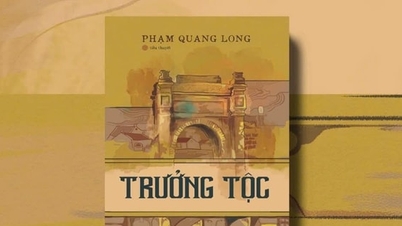
























































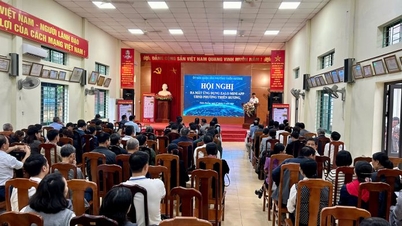


















Comment (0)